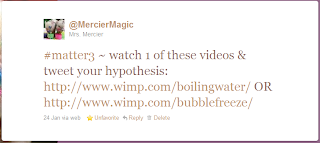Maintaining Sanity in the LMC
Processing books, designing an engaging space, creating engaging and QUICK lesson plans, keeping a pulse of what's happening school wide to meet everyone's needs (before they know they need it). Yup, Library Media Specialists are BUSY! Just these things alone can make us feel like we are chasing squirrels. I don't know about you, but I can feel pretty accomplished with all of those things and then BAM! I crumble because of something that happened with and/or between students.
Three things that typically can make or break my day include: students not being able to borrow books because they have lost or damaged book fines, students verbally hurting each other, and other kid behaviors like work refusal or noncompliance. While I do not have all of the answers, and on most days I can feel like I have NONE, I keep trying!
There are quite a few things that I have learned over the years as a Responsive Classroom Consulting Teacher and I continuously learn how to adapt it to my new role as a Library Media Specialist. Because let's be honest. If you, like me, were a classroom teacher before becoming a Library Media Specialist, then you know that it is different. We do not have the luxury of pulling or meeting with a student later in the day. Forever the optimist (at least I like to think that I am), I have been able to transfer a few things from my classroom teacher days and use or modify them for the Library Media Center.
First, let's tackle fines. I am not going to write about it again here, because I have written more about it in a previous post that you can read here. As a Responsive Classroom LMS, I know that when addressing behavior, I can use Logical Consequences to help kiddos repair and learn from their mistakes. One way I do that with fines is by helping them become Fine Free through the consequence of Reparation. What I am attempting to tell my young Library Learners is that book mistakes happen and that there are a lot of ways we can 'fix' that.
One of my favorite things to do as a classroom teacher was to help kids work through social interactions. I have a lot of different Responsive Classroom strategies that I use to help them with that, and one of my favorite introductory strategies to help them communicate with each other is "Let's Talk". This strategy was a HUGE HIT in my classroom to the point where my students made it their mission to teach other students across the school how to communicate with this structure. They even used it with their parents (PRIDE)!
Now, I will be honest...I completely forgot about this gem until I saw our Behavior Interventionist facilitating it with two PreK kiddos. It was a total slap myself in the head moment. Immediately after that, I ran to my computer to make an anchor chart (thank you, Canva!) and printed a bunch of copies. As luck would have it, a couple of second graders were in need of some communication support that day & it worked like a gem. For real. To the point where just ten minutes later one of those second graders asked if she could use the anchor chart to help her two friends work out a problem. Can I tell you an unintended consequence of this? That child, who previously was always checked out when she came to the LMC is now the rockstar of her class!!! Download it for FREE by clicking the button below.
Of course, I left this student behavior for last because it is the one thing that can totally make us feel completely ineffective. Regardless of how awesome of a lesson we created or how well 95% of the rest of the class did or day went. We will absolutely fixate on that one incident. This next poster I created at first for myself to help me think outside of the box when addressing behavior and then provide as an option for students. I find that students who engage in defiant behaviors are typically seeking opportunities to gain some power and control and this is another way I can do that for them. (I already do this through the Academic Choice that I provide.) If I can fulfill a need for them while helping them repair and learn from their mistakes it is a win win. You may notice that I called them Restorative Practices. This is because the school district I work in has done a lot of work with Restorative Practice. At the same time, I feel like they still are Responsive Classroom Logical Consequences: Reparation, Loss of Privilege, Time Out. You can download the entire bundle, which includes a poster by clicking the button below.
What are some ways you respond to behaviors in the Library Media Center? I would love to hear as I am always learning!
What are some ways you respond to behaviors in the Library Media Center? I would love to hear as I am always learning!






Comments
Post a Comment